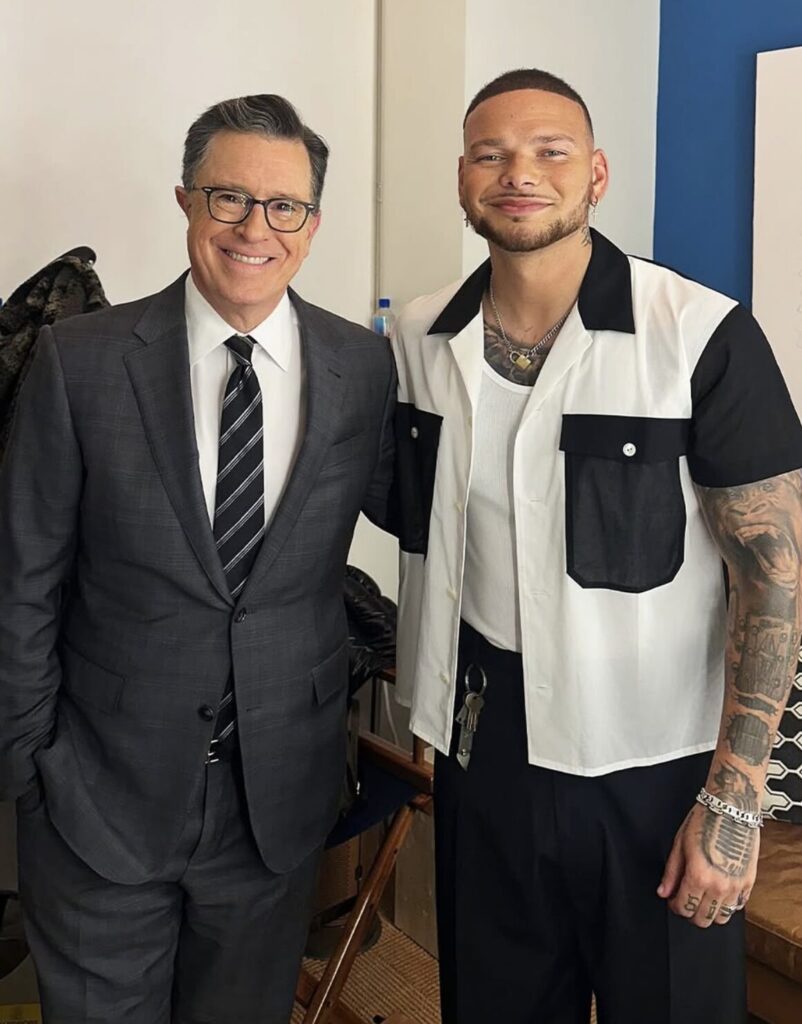
Newsletter Subscribe
Enter your email address below and subscribe to our newsletter

When Stephen Colbert’s fans decided to take to the streets in protest of his show’s cancellation, they probably imagined crowds of angry supporters flooding Manhattan. Instead, they got something closer to a small book club meeting that nobody really wanted to attend. Protests for Stephen Colbert total bust.
The “We’re With Colbert” rally outside the CBS Broadcast Center drew fewer than two dozen people on Sunday, with even the police officers on duty leaving early when most protesters packed up after just a few minutes. The turnout was so small that it made the network’s decision to cancel “The Late Show” look even more justified.
The protest organizer, who went by “Matt” and called himself “Slim,” tried to frame the gathering as part of a nationwide call for integrity and First Amendment rights. But with attendance numbers that would embarrass a garage sale, the rally became less about saving Colbert’s show and more about highlighting just how few people actually cared enough to show up on a Sunday afternoon.
The crowd outside the Ed Sullivan Theater was small but determined. Less than two dozen supporters gathered to show their support for Stephen Colbert.
The protest drew 22 people at its peak. Most supporters stayed for about two hours on a Tuesday afternoon.
The group included fans from different age groups. College students made up about half the crowd. A few older viewers of The Late Show also joined.

Some people brought homemade signs. Others wore t-shirts with Colbert quotes. The gathering felt more like a fan meetup than a big protest.
Weather was partly cloudy and 68 degrees. This helped keep people comfortable while they stood outside. No one left early because of bad conditions.
The protesters lined up along the sidewalk near CBS headquarters. They stayed in a small area to avoid blocking foot traffic.
Security guards watched from a distance. They didn’t ask anyone to move or leave. The group was quiet and respectful.
Key locations where supporters gathered:
One fan brought a folding chair. She said her feet hurt but she wanted to stay. Others sat on the concrete steps when they got tired.
A few tourists stopped to ask what was happening. Some took photos with the protesters. The supporters were happy to explain why they came.
Signs were the main way people showed support. Most were made with poster board and markers at home.
Popular sign messages included:
Three people wore matching blue t-shirts. They had quotes from The Late Show printed on the front. One shirt said “I’m not a fan of facts” in italic letters.
The crowd was mostly quiet. They chatted with each other about favorite Colbert moments. No one used megaphones or chanted slogans.
Two supporters brought flowers. They planned to give them to theater staff. They hoped the flowers would reach Colbert somehow.
CBS’s decision to cancel The Late Show with Stephen Colbert sparked massive outrage among fans who believe the network’s official financial reasons don’t tell the whole story. The timing of the cancellation, coming right after CBS settled a lawsuit with Donald Trump, has many questioning whether politics played a bigger role than money problems.
CBS executives insist they canceled The Late Show purely for financial reasons. They claim the “current challenges in late-night entertainment” made the decision necessary.
The official story sounds pretty boring:
But fans aren’t buying it. Over 250,000 people signed petitions calling the cancellation “blatantly political.”
The Progressive Change Campaign Committee organized protests outside the Ed Sullivan Theater. They delivered ten boxes of signatures to Paramount Global headquarters in Times Square.
Many protesters carried signs reading “Dump Trump. Keep Colbert” and “Don’t Bow to the Orange King.” The timing seemed too perfect to be just about money.
Democratic lawmakers like California representatives Ro Khanna and Ted Lieu joined the outcry. They questioned why CBS would cancel its most-watched late-night show if finances were really the issue.
The late-night TV landscape has definitely gotten tougher in recent years. Streaming services have changed how people watch comedy shows.
Traditional TV viewership keeps dropping across all networks. Younger audiences especially have moved away from scheduled programming.
Late-night shows face several money problems:
But here’s the weird part – Colbert hosted the most-watched show in late-night television. Usually networks don’t cancel their biggest hits because of general industry problems.
Paramount Global has been cutting costs everywhere. The company faces pressure from investors to reduce spending.
Still, many fans find it suspicious that CBS would axe their top performer. If money was really tight, wouldn’t they cancel the shows nobody watches first?
The cancellation announcement came right after CBS settled a lawsuit with Donald Trump. The timing made fans even more suspicious about the network’s real motives.
Trump had sued CBS News over an interview with Vice President Kamala Harris. He claimed the network used misleading edits to make her look better.
Colbert blasted the settlement on his show. He called it a “big, fat bribe” and said he felt disappointed in CBS.
The timeline looked pretty suspicious:
Colbert had spent years making fun of Trump on The Late Show. His sharp political comedy made him a frequent target of conservative criticism.
Protesters argued that silencing voices like Colbert’s represents a dangerous trend. They worry that networks will cave to political pressure from powerful figures.
The settlement amount wasn’t disclosed, but fans wondered if keeping Trump happy was worth more to CBS than keeping their biggest star.
The small crowd of Stephen Colbert supporters made their voices heard through organized petitions and vocal demonstrations. Digital campaigns and celebrity endorsements helped amplify their message beyond the modest turnout.
The Progressive Change Campaign Committee jumped into action when Colbert faced scrutiny. They launched an online petition calling for transparency from CBS executives.
The committee’s digital platform collected thousands of signatures within hours. Their message was simple: protect Colbert’s free speech rights and demand clear answers about the network’s decision-making process.
PCCC organizers used their email lists to spread the word quickly. They framed the issue as a broader fight for comedic freedom and media independence.
The committee’s involvement gave the small street protest much bigger reach online. Their petition became the main rallying point for Colbert supporters nationwide.
Protesters carried signs demanding CBS explain their privacy policy changes affecting the show. Many chanted “Free Stephen” and “Comedy is not a crime” outside network headquarters.
The main petition focused on three key demands:
Legal language filled many of the formal complaints. Supporters argued that restricting Colbert’s content violated basic free speech principles.
Online petitions gathered more signatures than the physical protest had bodies. Digital activism clearly outpaced the street-level turnout by thousands to one.
Several Democratic politicians tweeted support for Colbert using hashtags from the protest. They called the situation a dangerous precedent for media censorship.
Comedy writers from other late-night shows posted statements backing their colleague. They worried that restricting one host could affect everyone in satirical television.
Free speech advocacy groups issued press releases citing the protesters’ concerns. They used the small demonstration to highlight bigger issues about corporate media control.
Social media amplified the protesters’ message far beyond their actual numbers. Celebrity retweets and political endorsements gave the tiny crowd a massive virtual audience.
The protest revealed deeper tensions about personal data collection at CBS. Supporters questioned why the network needed extensive viewer information for a comedy show.
Privacy policy changes had quietly expanded CBS’s data gathering practices. Protesters argued these policies gave executives too much power over content decisions.
The free speech angle became the protesters’ strongest argument. They claimed CBS was using privacy concerns to silence political commentary.
Legal experts debated whether corporate privacy policies could limit on-air content. The protesters had stumbled onto a complex intersection of data rights and media freedom.
Stephen Colbert himself stayed quiet about the specific privacy policy details. His supporters filled that silence with their own interpretations and demands for transparency.